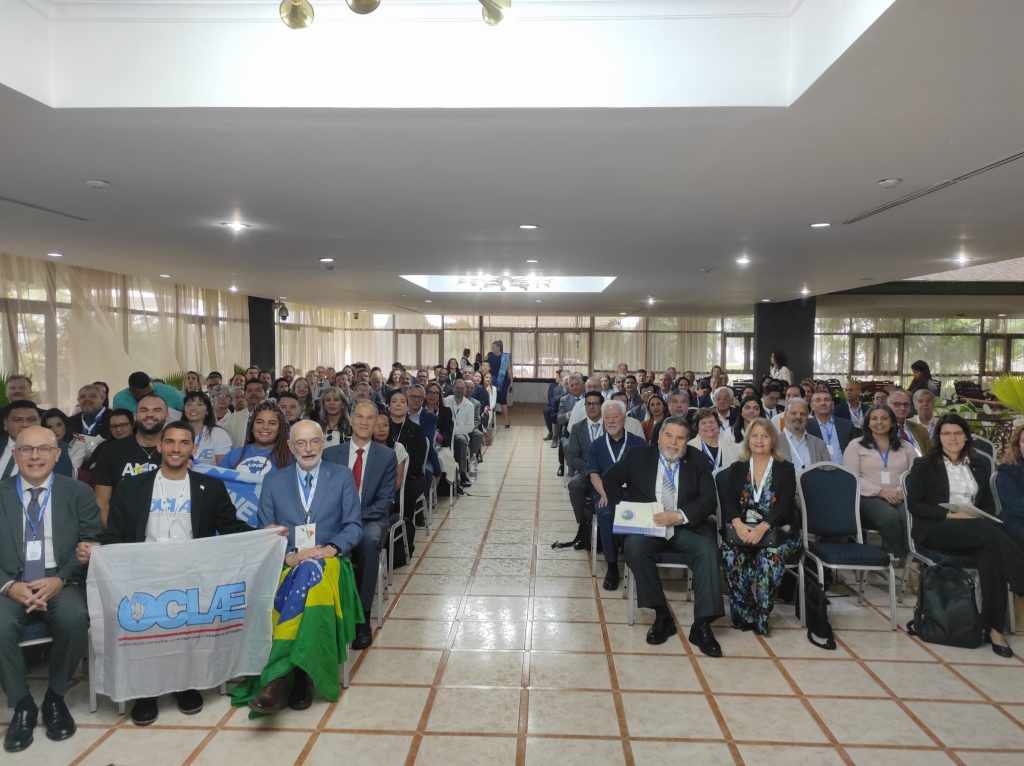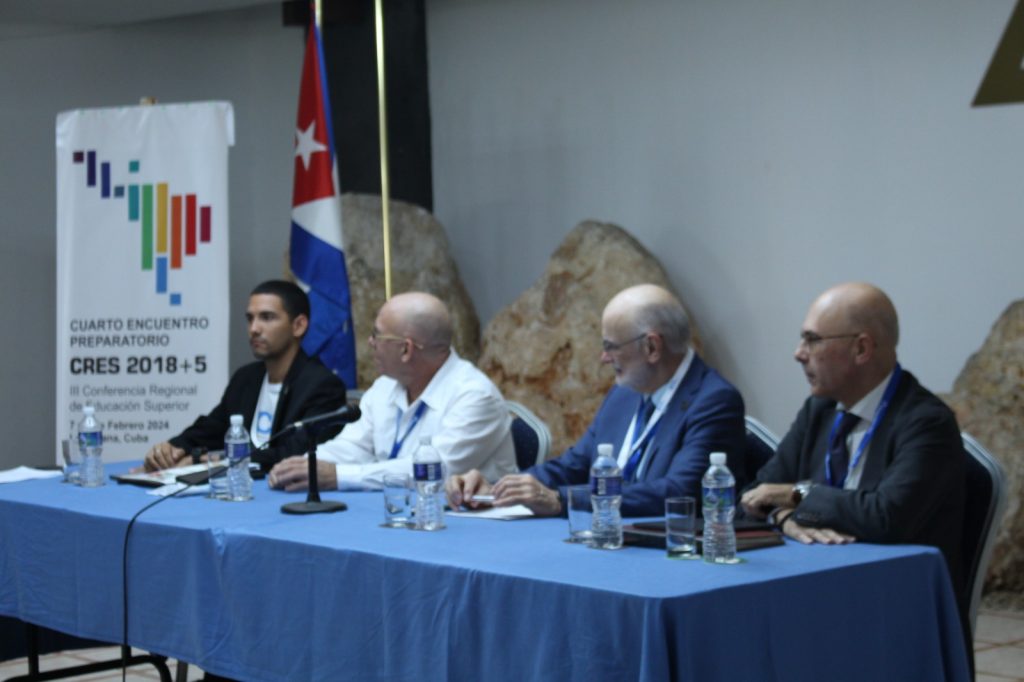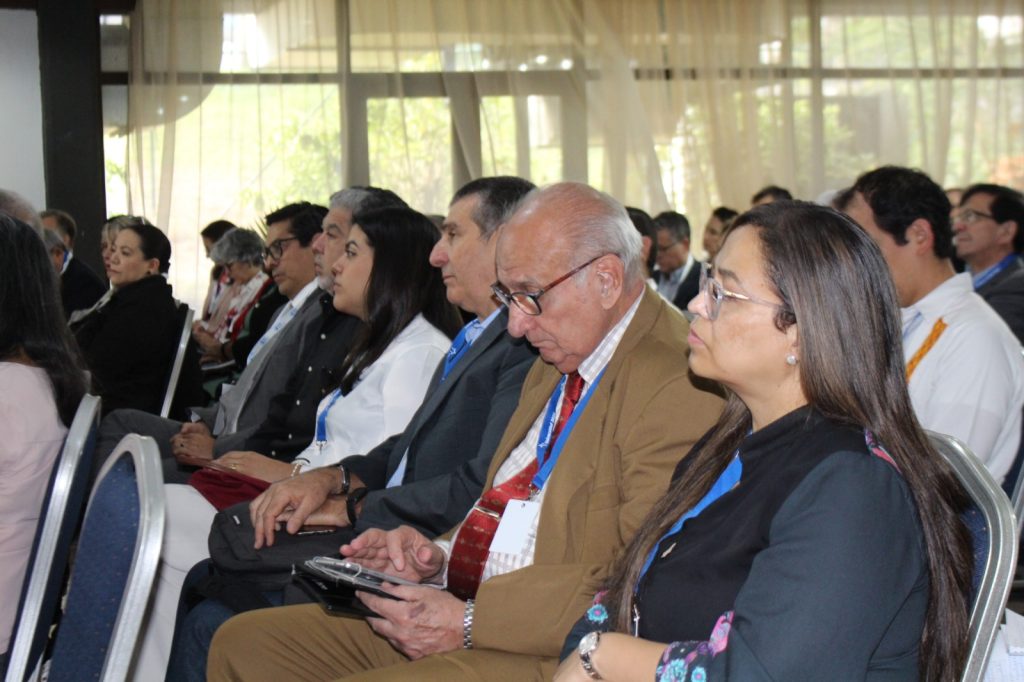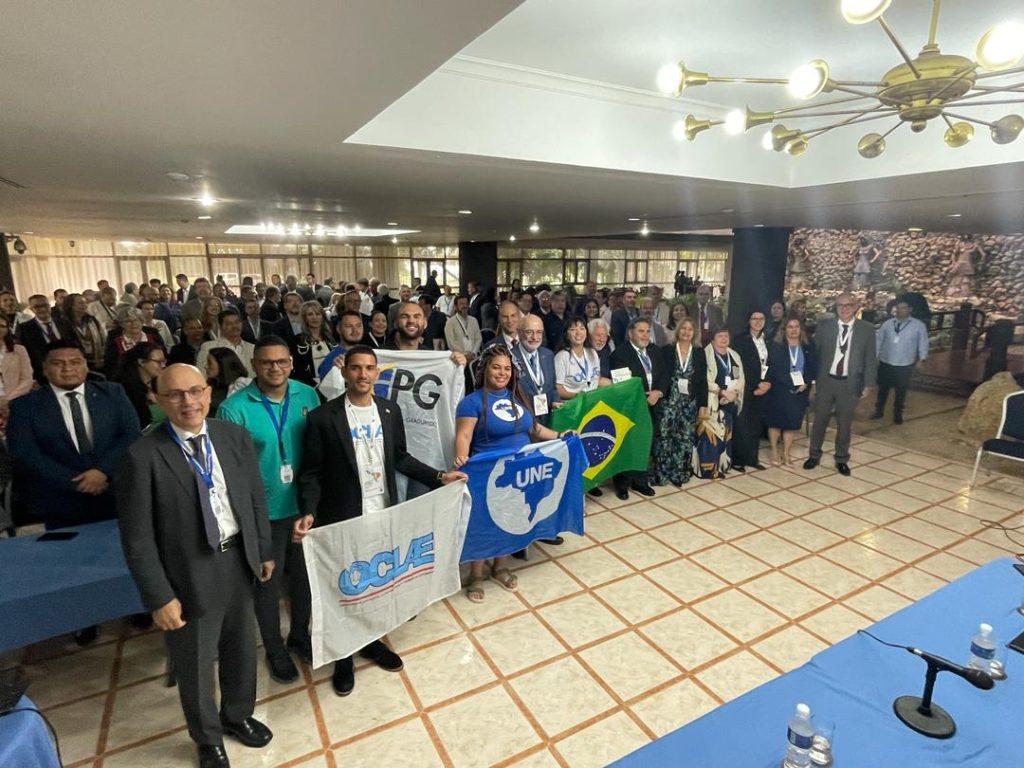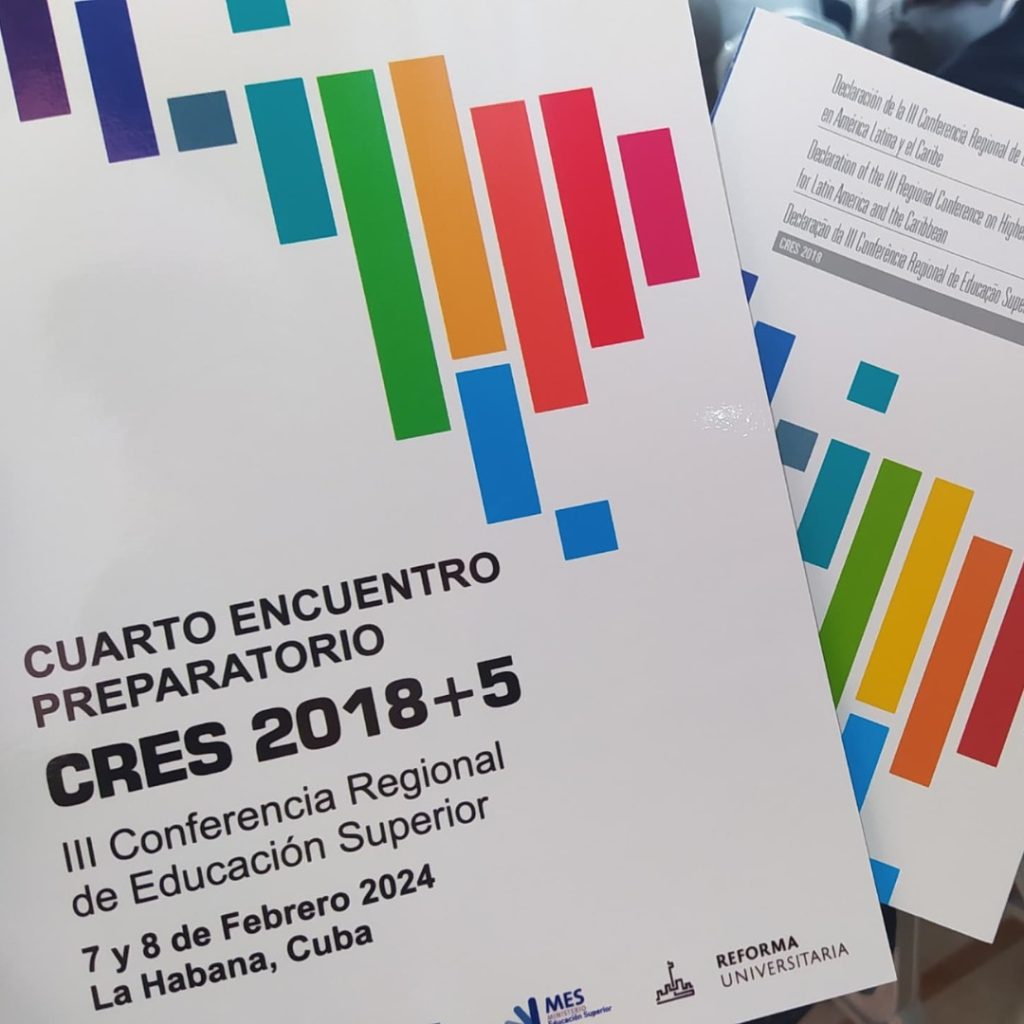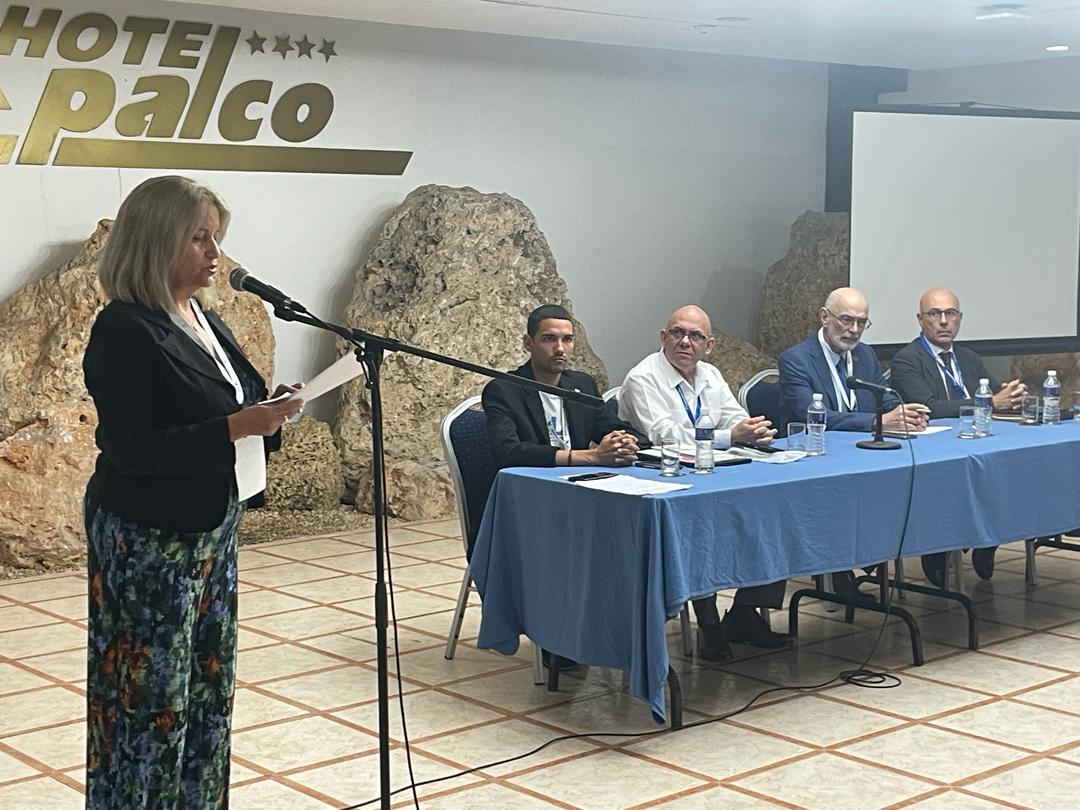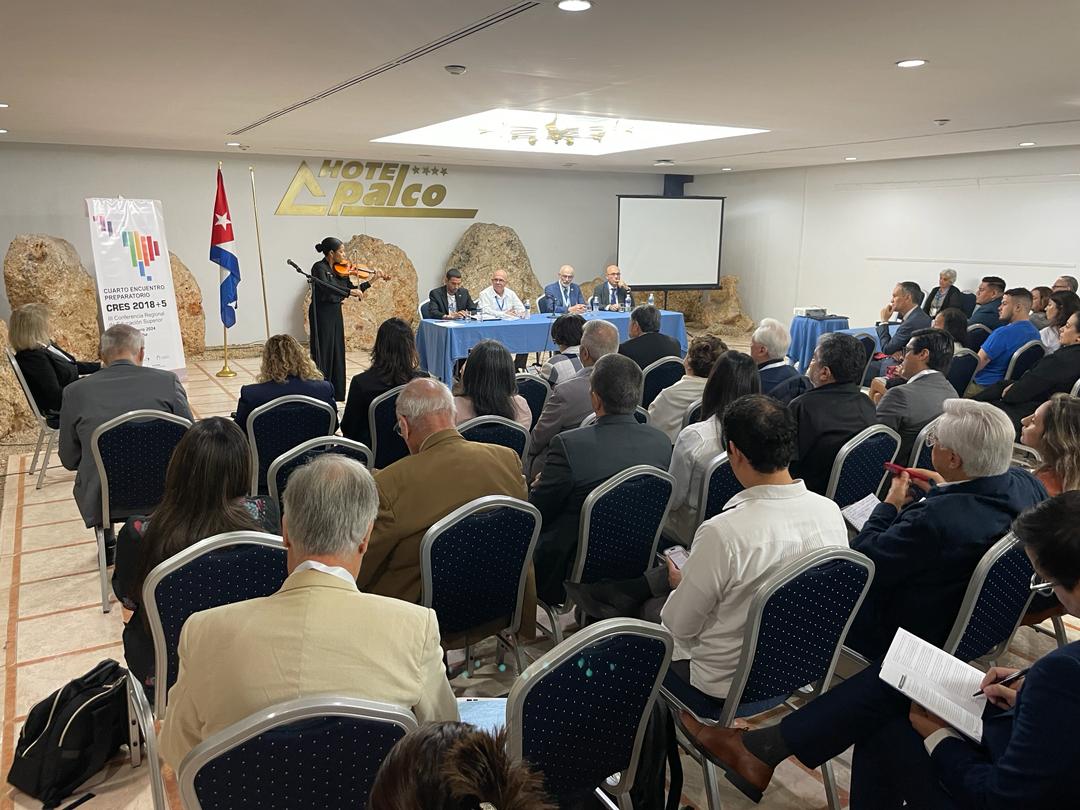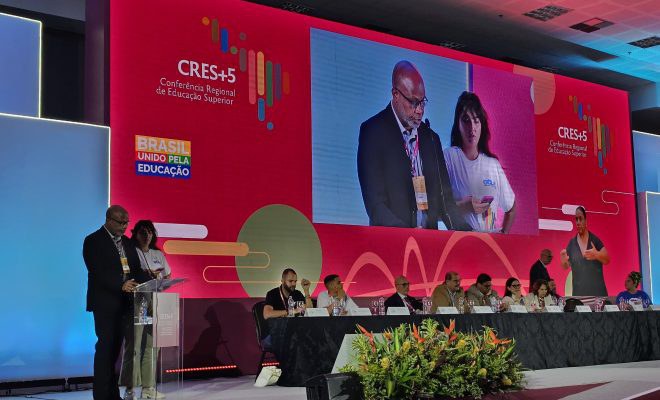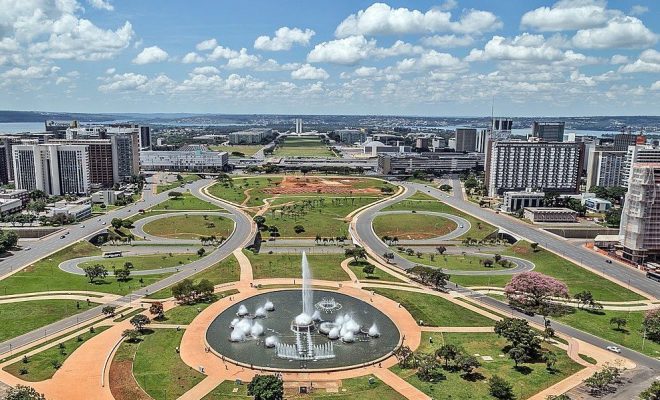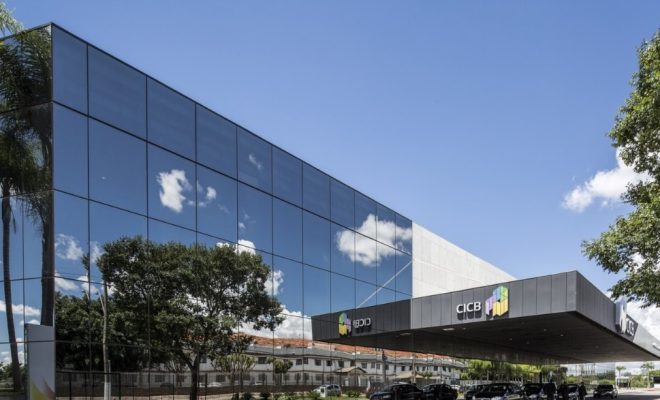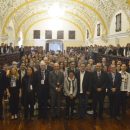Higher education leaders attended the inauguration of the fourth preparatory meeting for CRES+5
More than 160 people attended the meeting being held in Cuba as part of University 2024 framework, to join the discussion tables around the thematic axes of the follow-up meeting of the third Regional Conference on Higher Education, which will convene all actors in higher education in Brasilia, from March 13th to 15th.
On February 7th 2024, at the Palco Hotel Convention Center, the fourth preparatory meeting for the follow-up meeting of the Regional Conference on Higher Education, CRES+5, was inaugurated in Havana, Cuba. The event, which was attended by a large representation from Latin America and the Caribbean, was inaugurated before a large group of regional higher education stakeholders who, for two days, discussed the 12 thematic axes of CRES+5, based on the working documents that have been developed in an open and consensual manner throughout Latin America and the Caribbean towards CRES+5 in Brasilia, from March 13th to 15th.
Miriam Alpízar, master of ceremonies of this event, gave the welcome on behalf of women in higher education in Cuba, as president of the Gender Committee of the Ministry of Higher Education and its network of institutions, and on behalf of the women who have been part of the Governing Council of the UNESCO International Institute for Higher Education in Latin America and the Caribbean, of which she is vice-president.
“I pay faithful and respectful homage to all women, leaders, managers, professors, researchers, workers and students of Cuban higher education. Likewise, I recognize and praise the Latin American and Caribbean women and from other latitudes who enhance the work of higher education in the region and who have been the main characters of its development, projecting and contributing to a better future, with a university at the height of these times and of the future.”
The inaugural panel opened with words from the Vice Minister of Higher Education of Cuba, Reynaldo Velásquez Zaldívar, who described these two days of work as transcendental for Latin America and the Caribbean, since all the region’s public policy decision-makers are here in Havana, within the framework of the University 2024 Conference, working to guide higher education towards the future.
“From the discussion around the twelve thematic axes of CRES+5 will come the higher education that the region deserves. We are honored that these working sessions are taking place within the framework of Universidad 2024,” he said.
On behalf of the Government of Brazil, the Director of International Relations of the Coordination for the Improvement of Higher Education Personnel (CAPES), Rui Oppermann, said that this fourth meeting is the most important point after the work carried out for more than a year with UNESCO IESALC and other regional actors towards the construction of CRES+5 in Brasilia.
“The construction of public policies also comes out of the congresses and we have the responsibility to transform the echoes that reach us into a look towards the future, honoring the CRES 2018 in Córdoba and without forgetting that we have great challenges, such as Covid, which challenged our societies. This meeting is the only space we have as an opportunity to reflect on how we got here and what we have to contribute towards the future, to leave with a consensus on the twelve axes and with a minute final declaration to be debated and acclaimed in Brasilia for Latin America and the world.”
Miguel Angel Machado Rojas, president of the Latin American and Caribbean Continental Student Organization (OCLAE), spoke on behalf of Latin American and Caribbean youth, to the need to include their voices in the debate on new forms of education, the scope of technology, access and the future of higher education if students are not there. He reported that OCLAE has worked on the thematic axes and public consultations and publicly proposed the creation of a regional Student Observatory to think about the Latin American and Caribbean university that is required.
“And to join in the construction of the axes and the declaration towards our meeting in Brasilia. This is a call to action: to create student mobility, to promote the internationalization of higher education and thus contribute to regional development from Latin America: the future must have science and social development in the outlook.” he said.
The inaugural panel closed with words from Francesc Pedró, Director of UNESCO IESALC, who reaffirmed UNESCO’s role as a platform for dialogue between rectors, student representatives, academics, policy makers and representatives of higher education institutions, in favor of a more participatory vision of higher education in the region.
“On behalf of UNESCO, I would like to make a special acknowledgement to all of you present here for the effort you have made to mobilize yourselves to contribute and support the orientation of our work in order to outline viable future paths five years from now. We need to make an effort to know what messages to send about the priorities we have in political contexts that are not easy, but with a great opportunity in a meeting that is unique in its consensus: help us project this consensus into the future.” he said.
